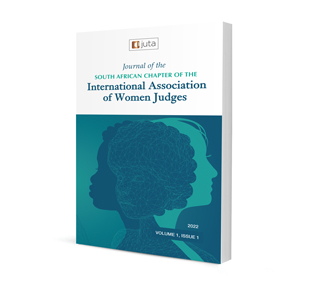Women pioneers in the judiciary programme – supporting women judges and law students in Southern Africa

Women pioneers in the judiciary programme – supporting women judges and law students in Southern Africa
Author: Baratang Constance Mocumie
ISSN: 2958-4973
Affiliations: LLM (UNISA); Judge of the Supreme Court of Appeal, South Africa; member of the South African Chapter – International Association of Women Judges; former President, SAC-IAWJ
Source: Journal of the South African Chapter of the International Association of the Women Judges, Issue 1, 2022, p. 51-68
https://doi.org/10.47348/JSAC-IAWJ/2023/a3
Abstract
Most women in the judiciary and legal practice have no one to mentor them. Those potential mentors who are in senior positions are in court at the same time as the junior women are. The opportunity to empower each other (to bring about the achievement of equality, the empowerment of those previously disadvantaged, and the promotion of the rule of law and justice) is hard to find or create on an individual basis. Women who wish to share their experiences with others to empower them so that they can do the same for others can do so through programmes specifically designed by their associations to meet these objectives. This article explains what the South African Chapter of the International Association of Women Judges (SAC-IAWJ) has done over the years to empower women (those on the bench, those studying law, and those The Competition Appeal Court as a specialist court: in practice) and young people in general. The uniqueness of the various programmes lies not only in empowering women but also in instilling a sense of pride and acknowledging women and their contribution to the development of the law.